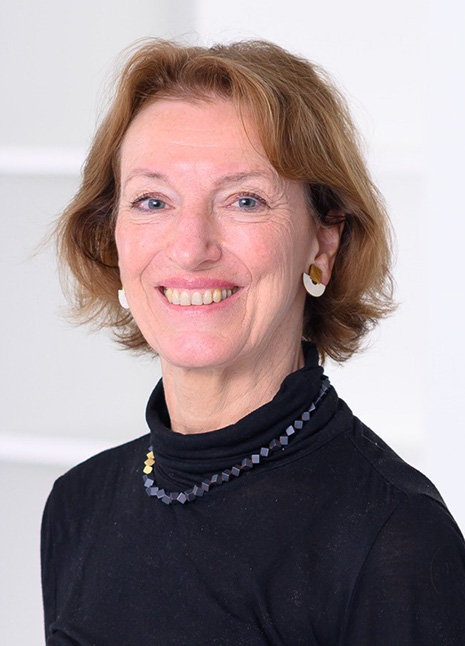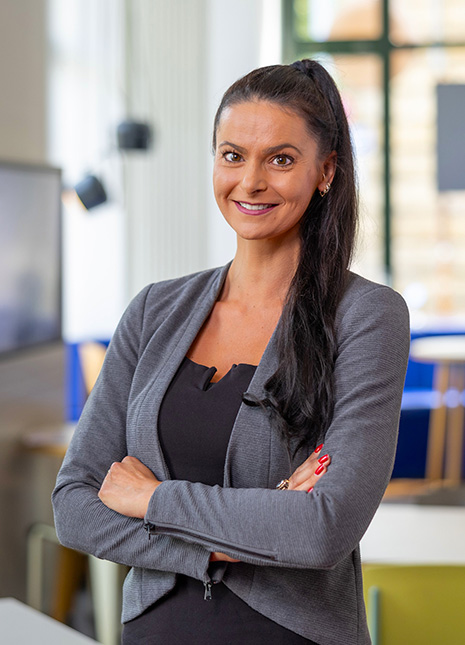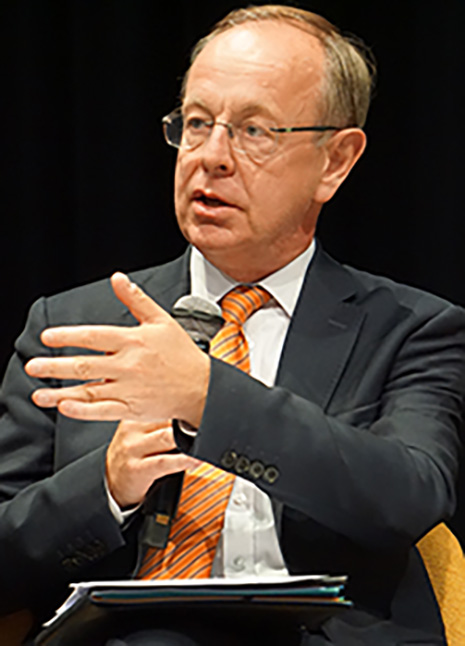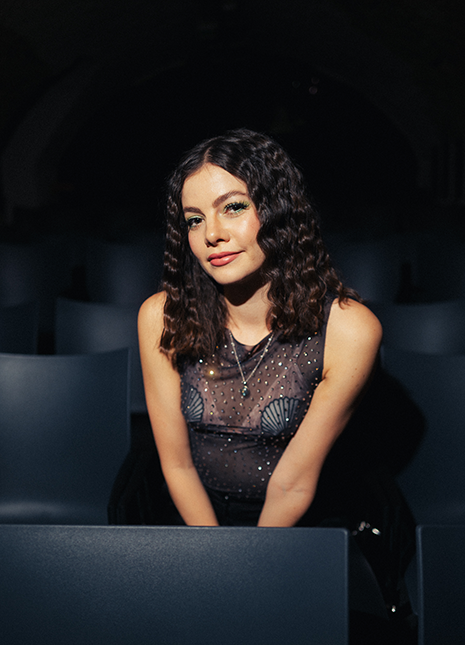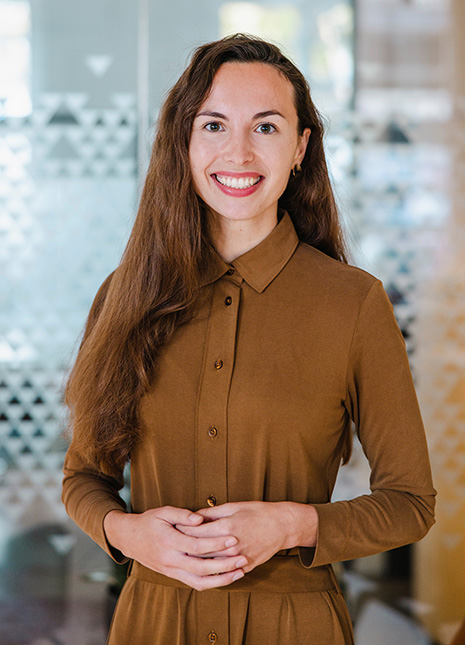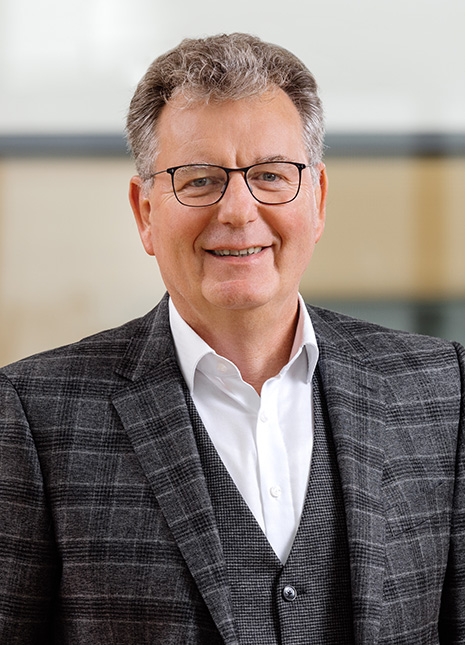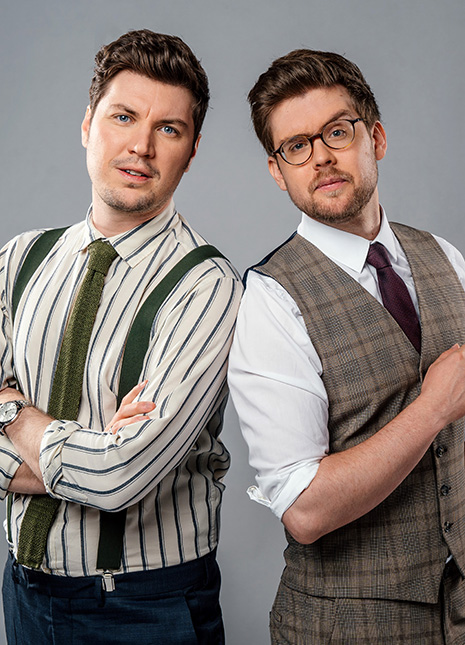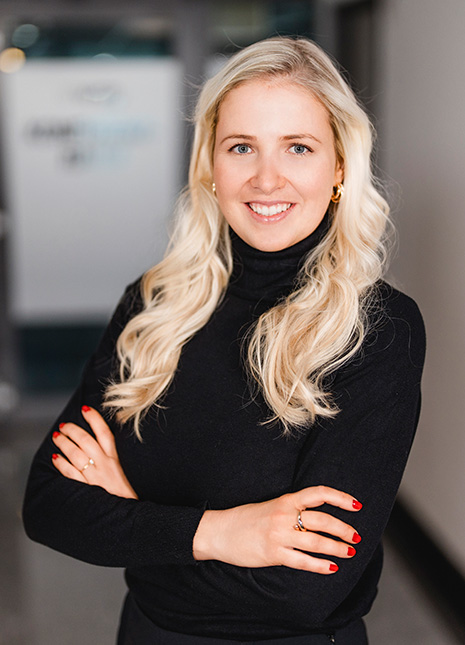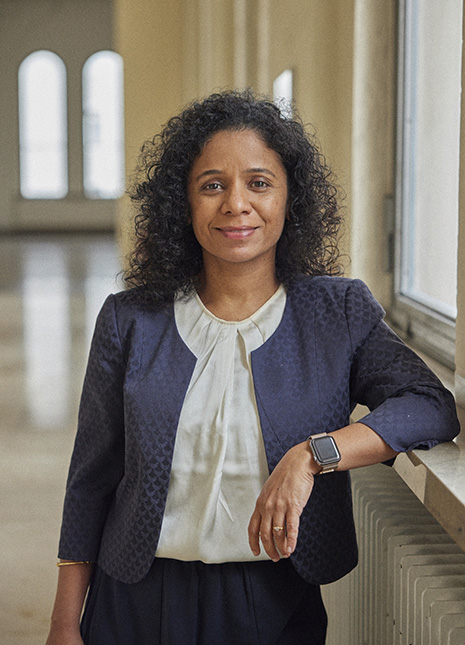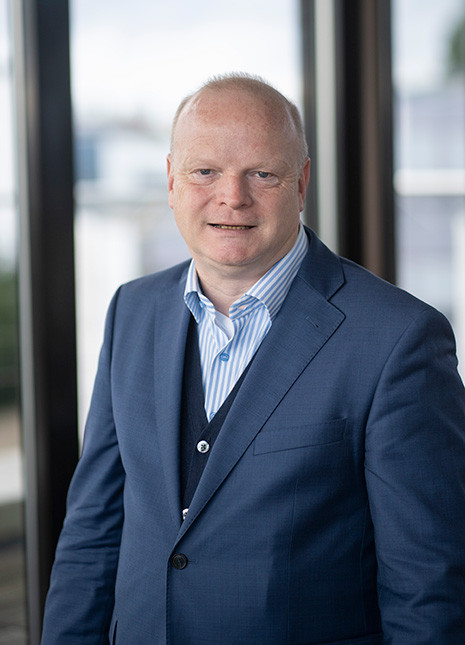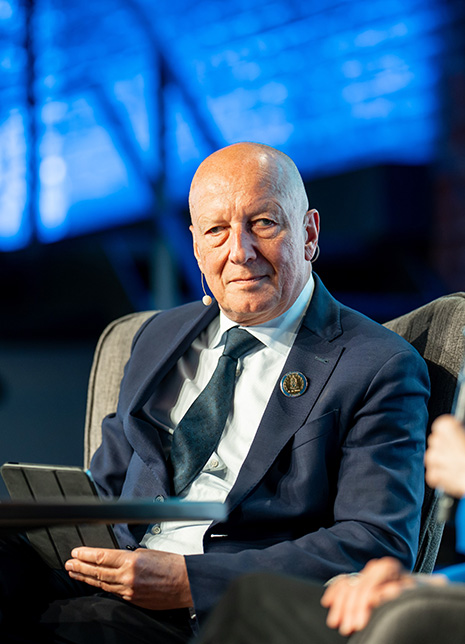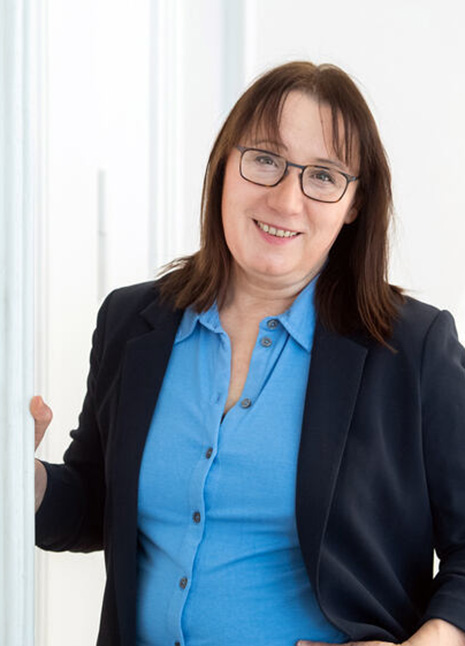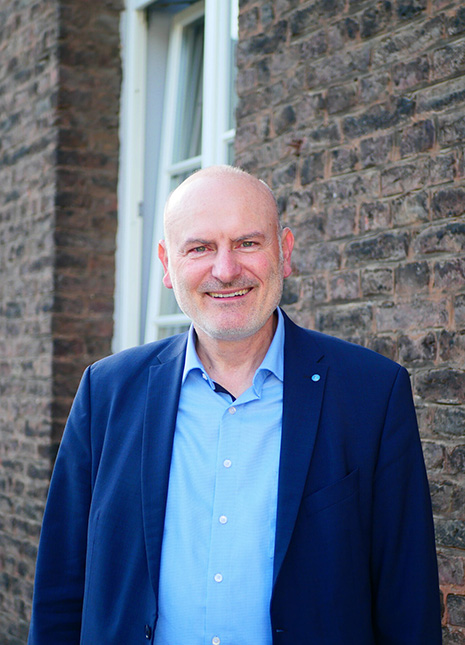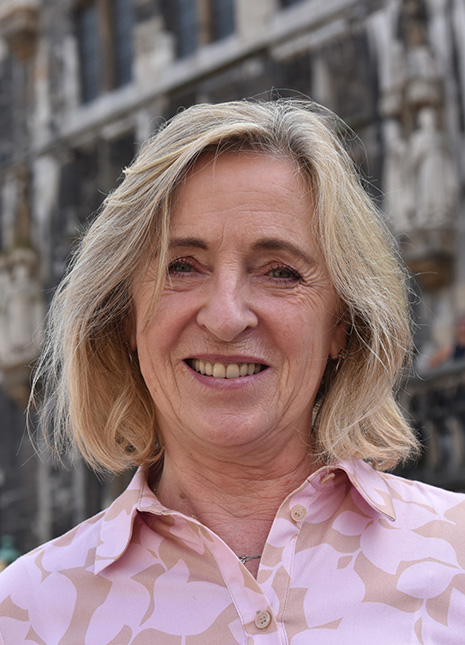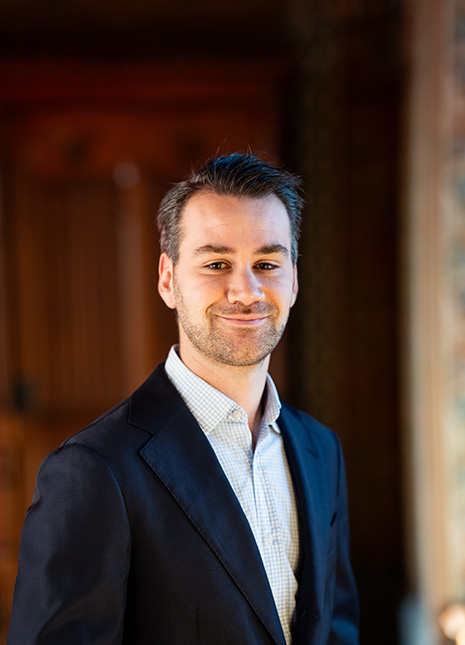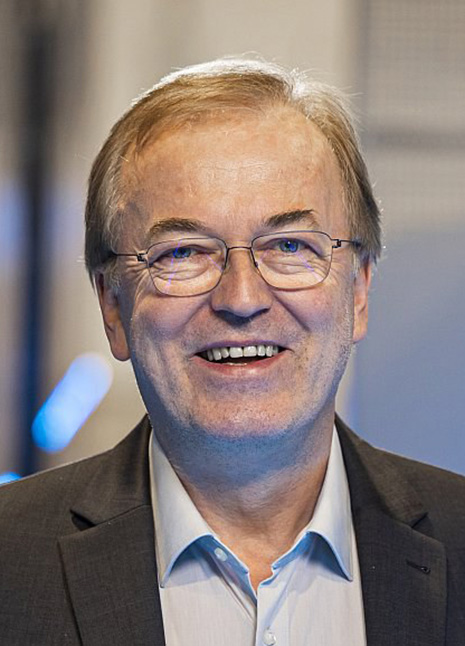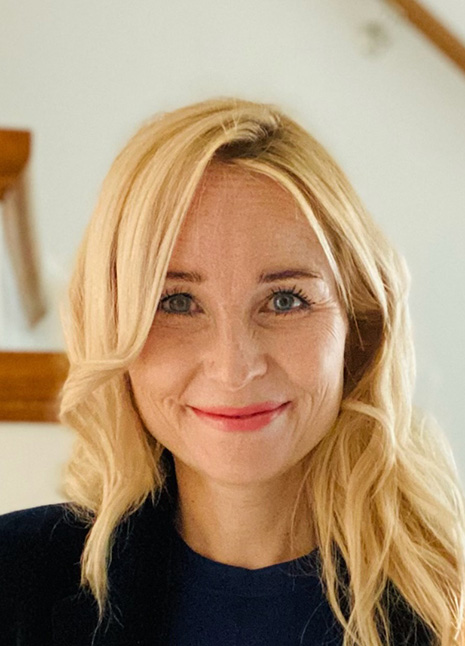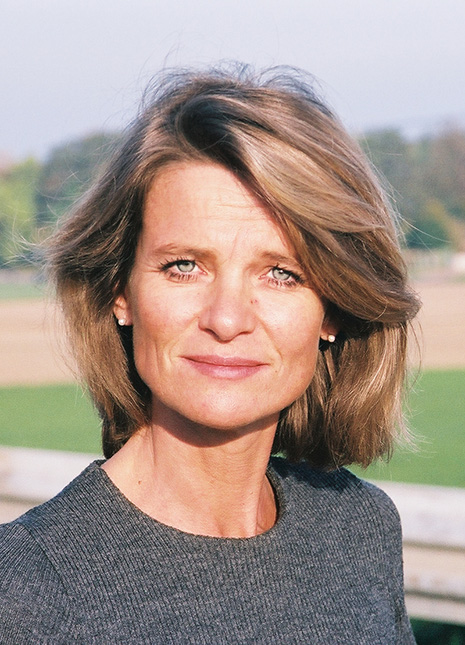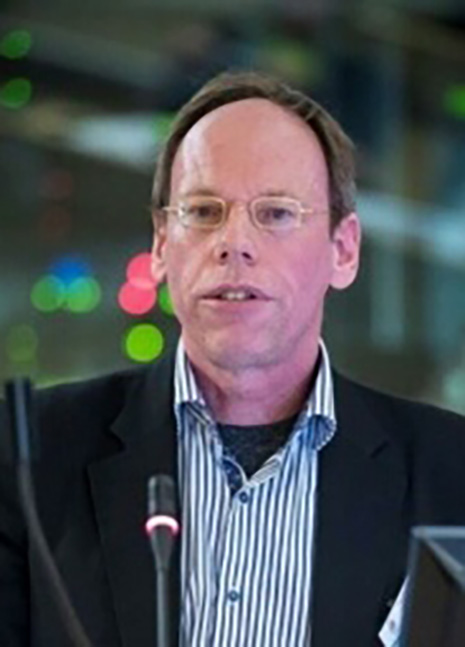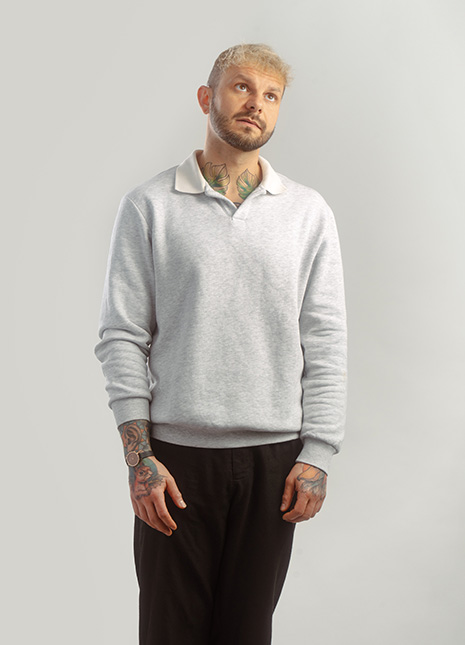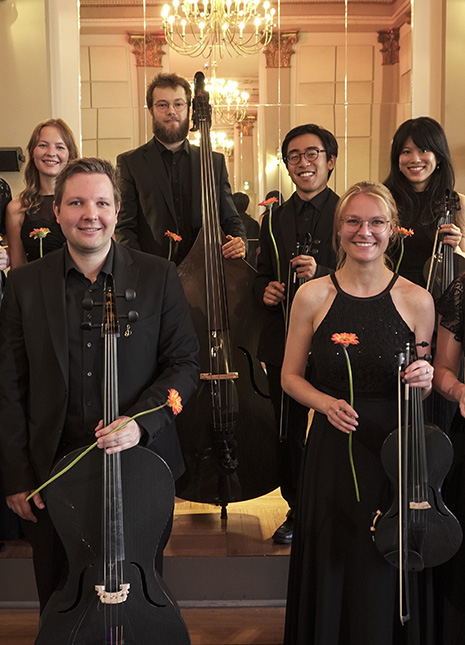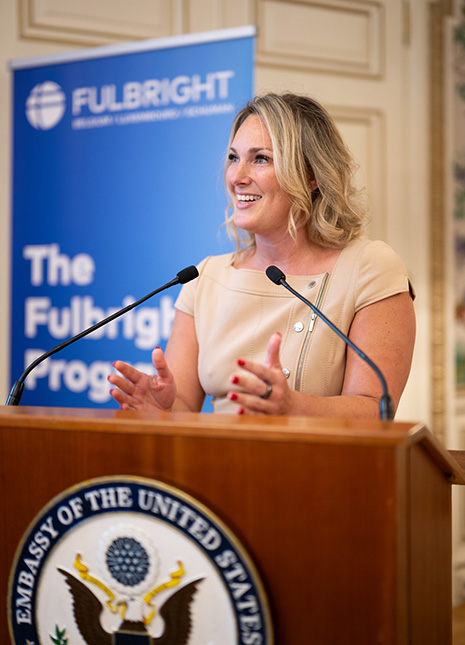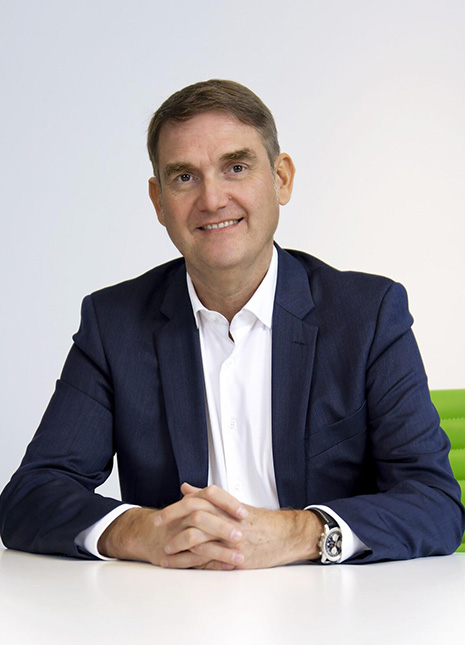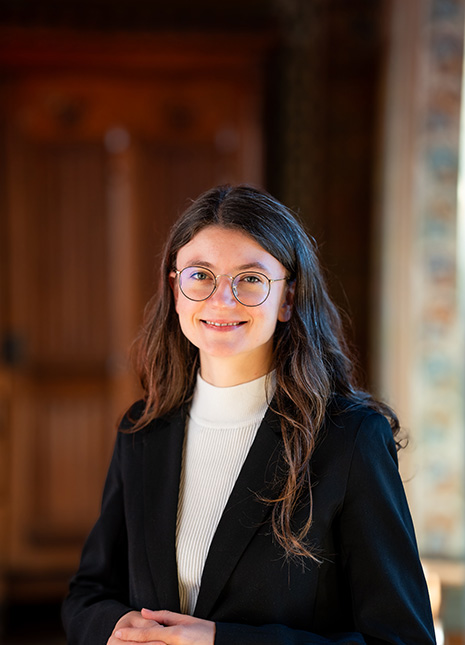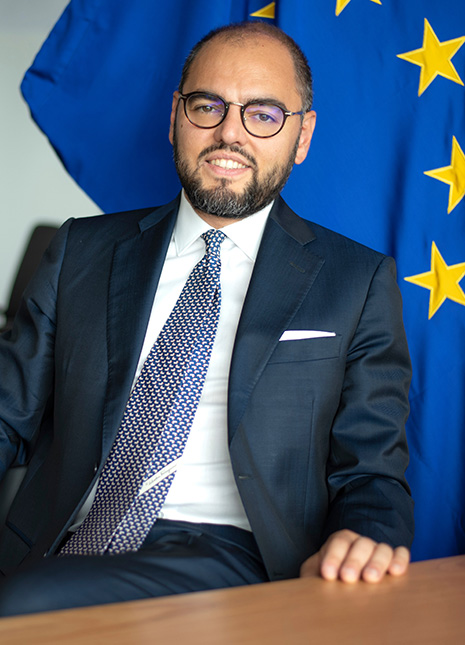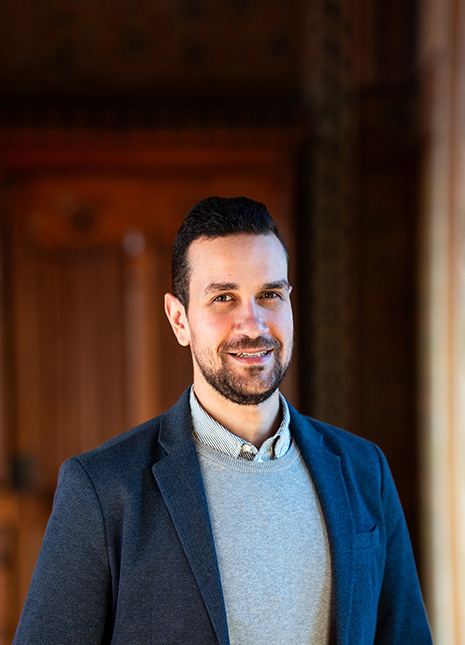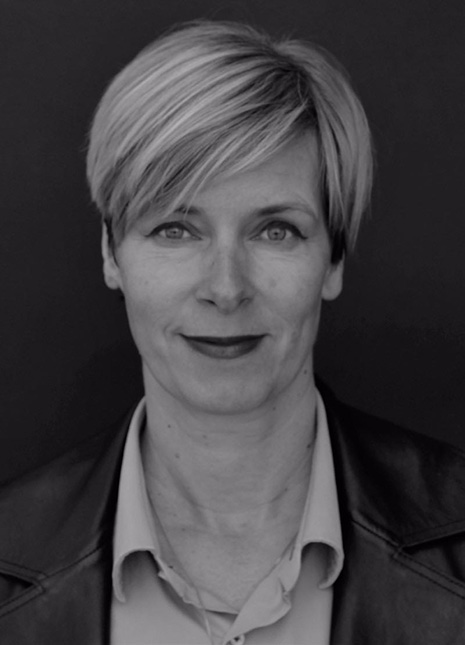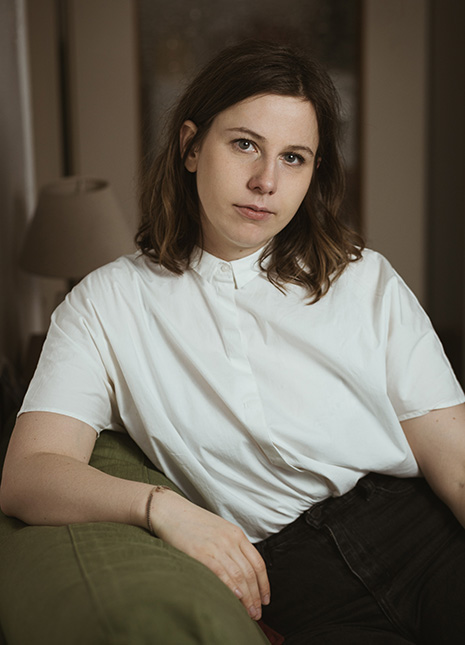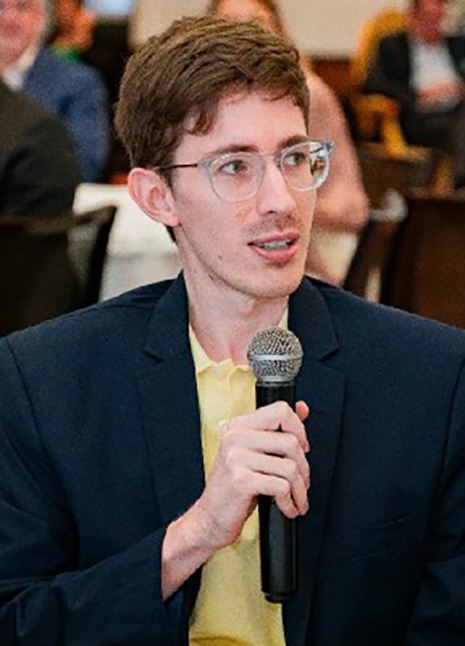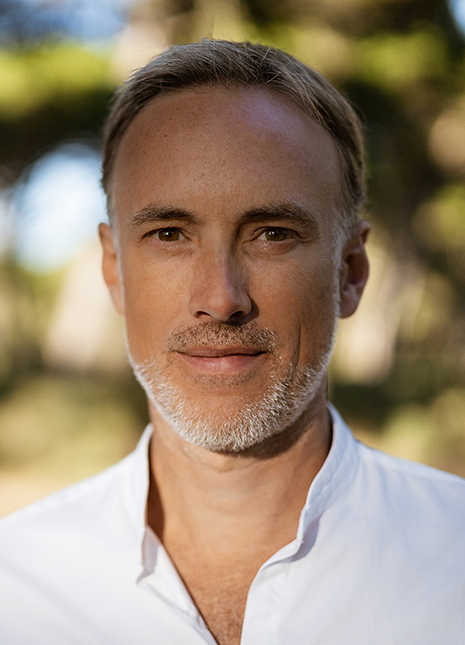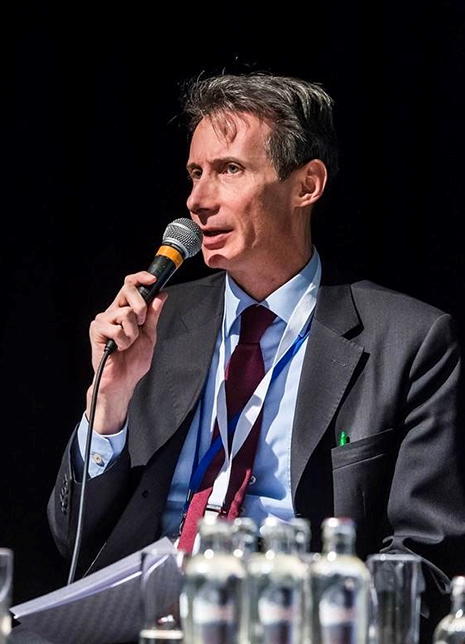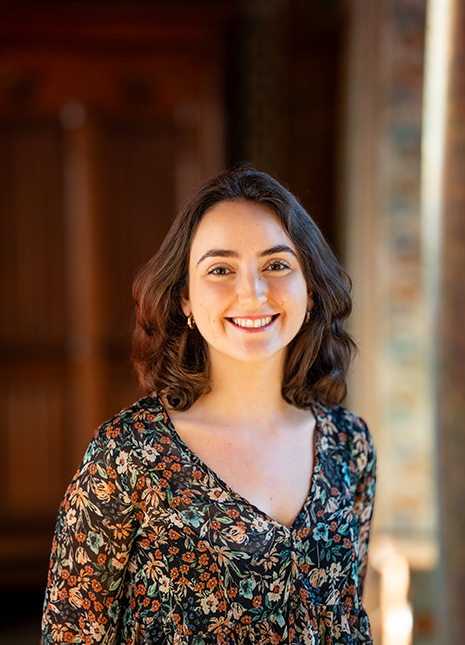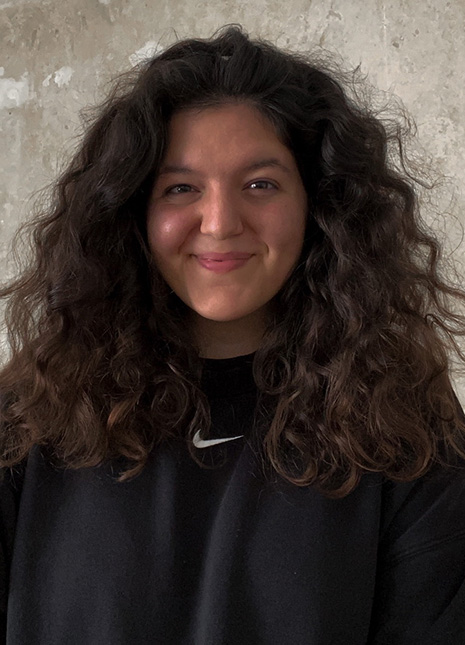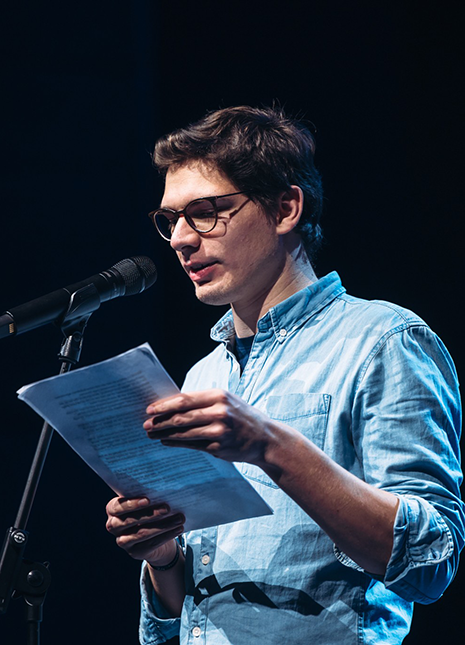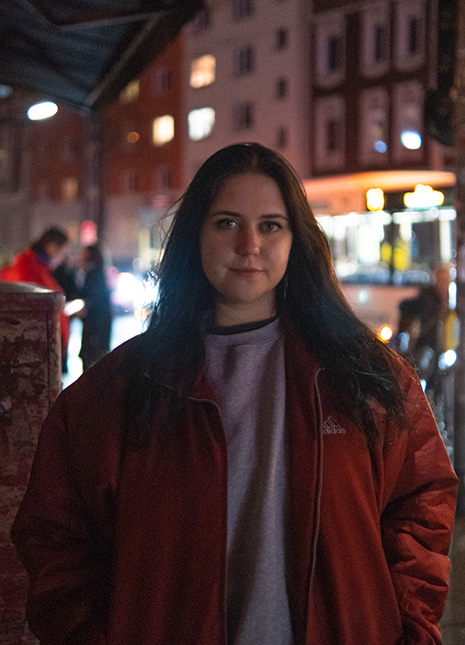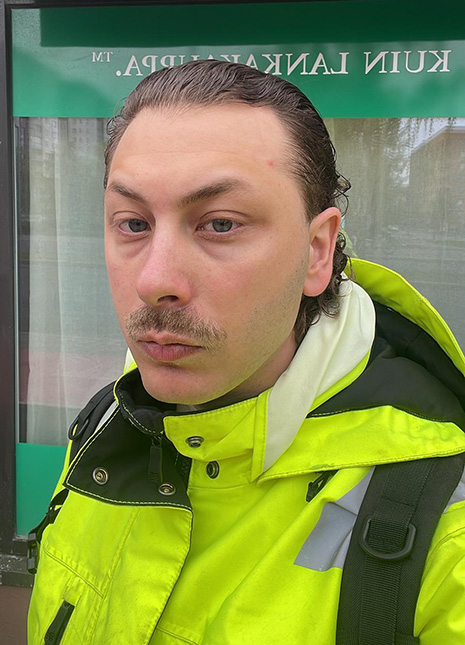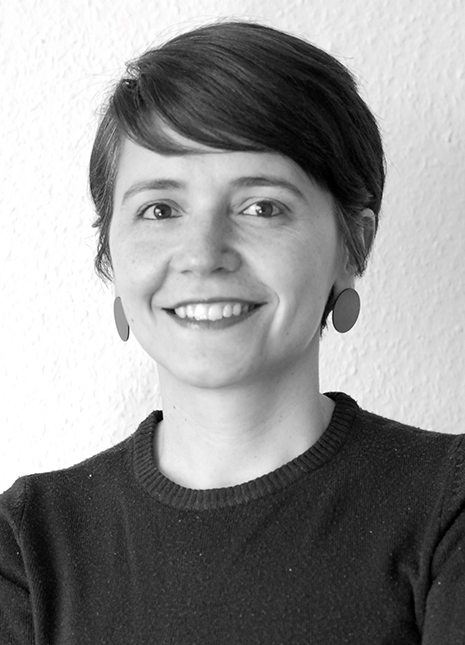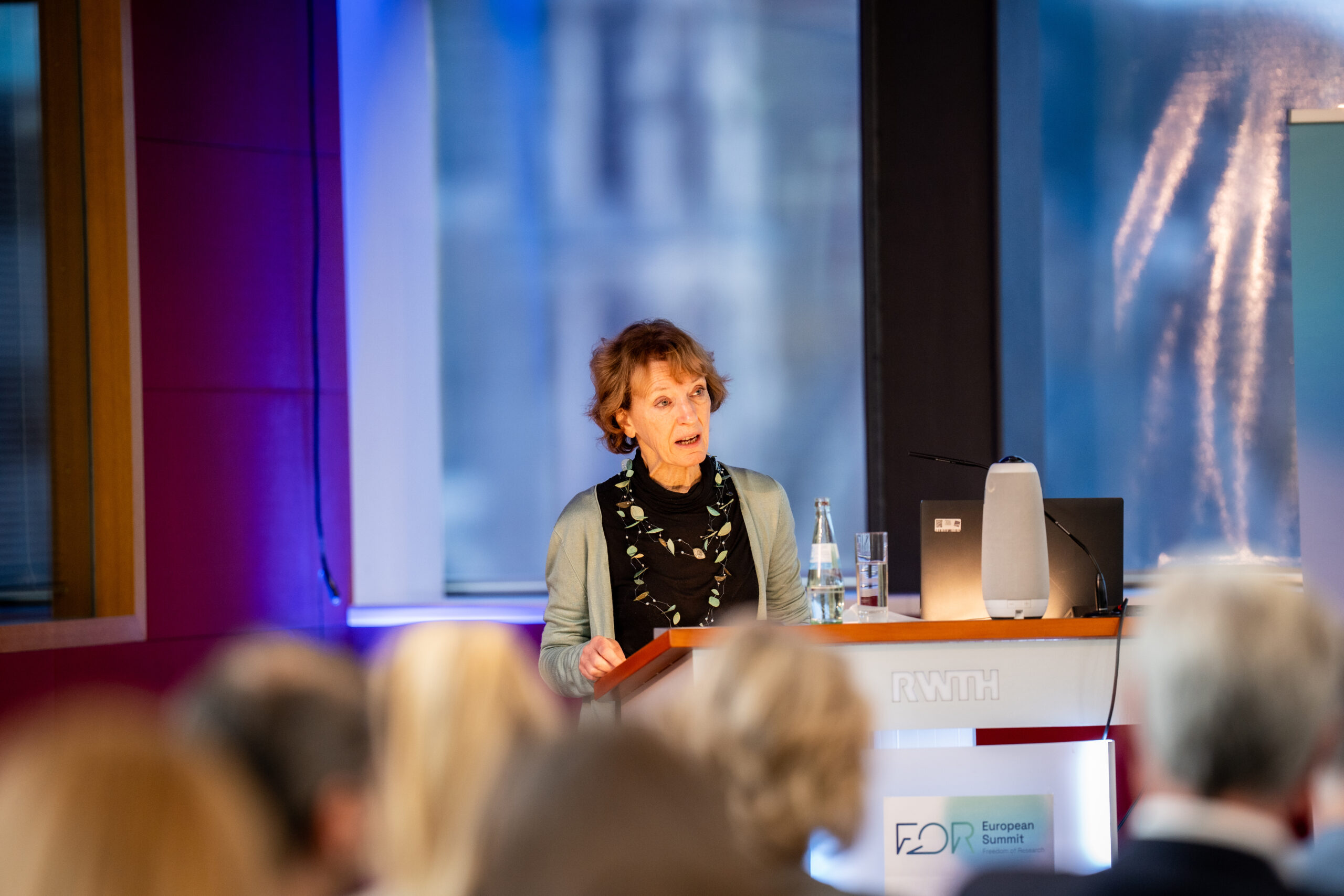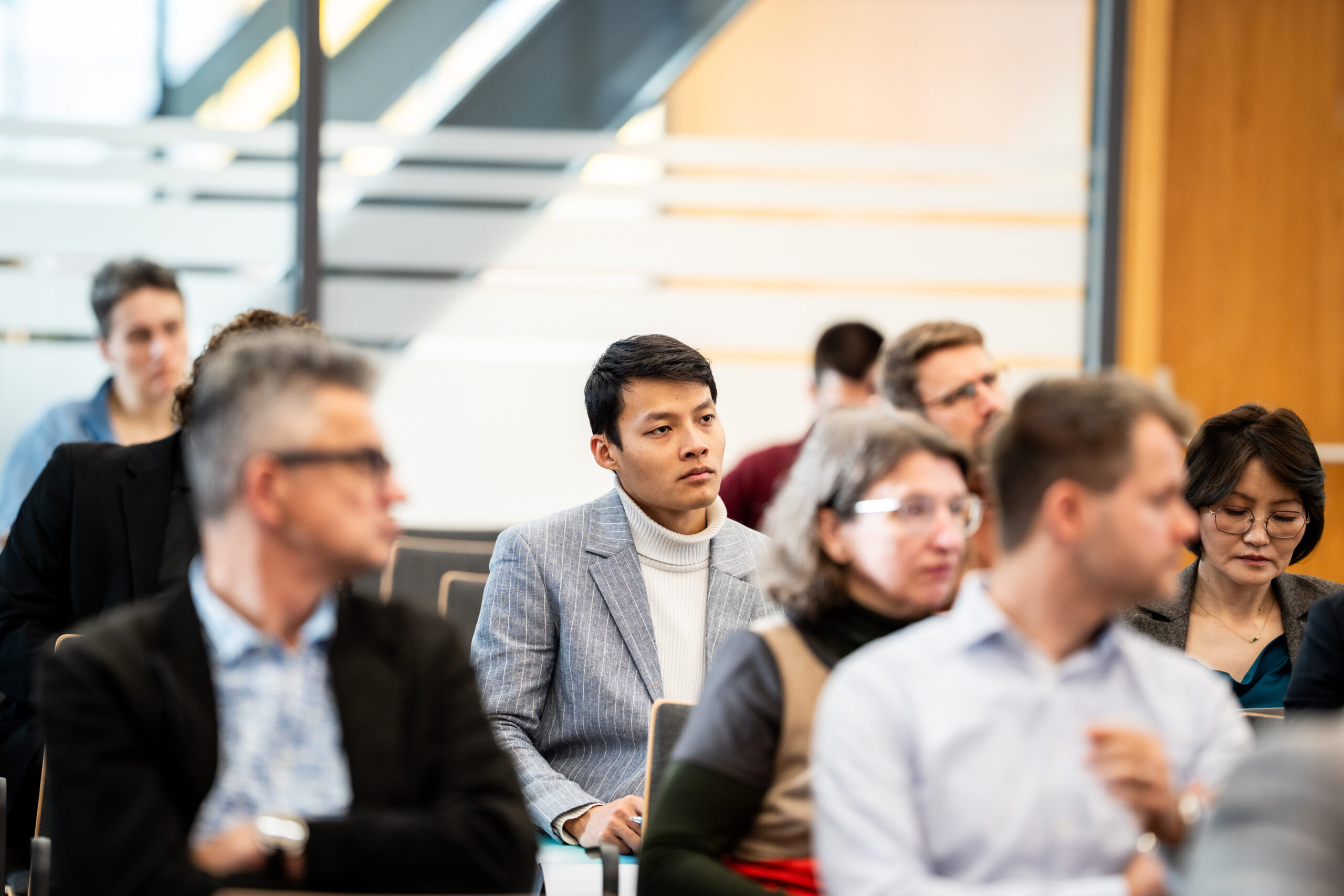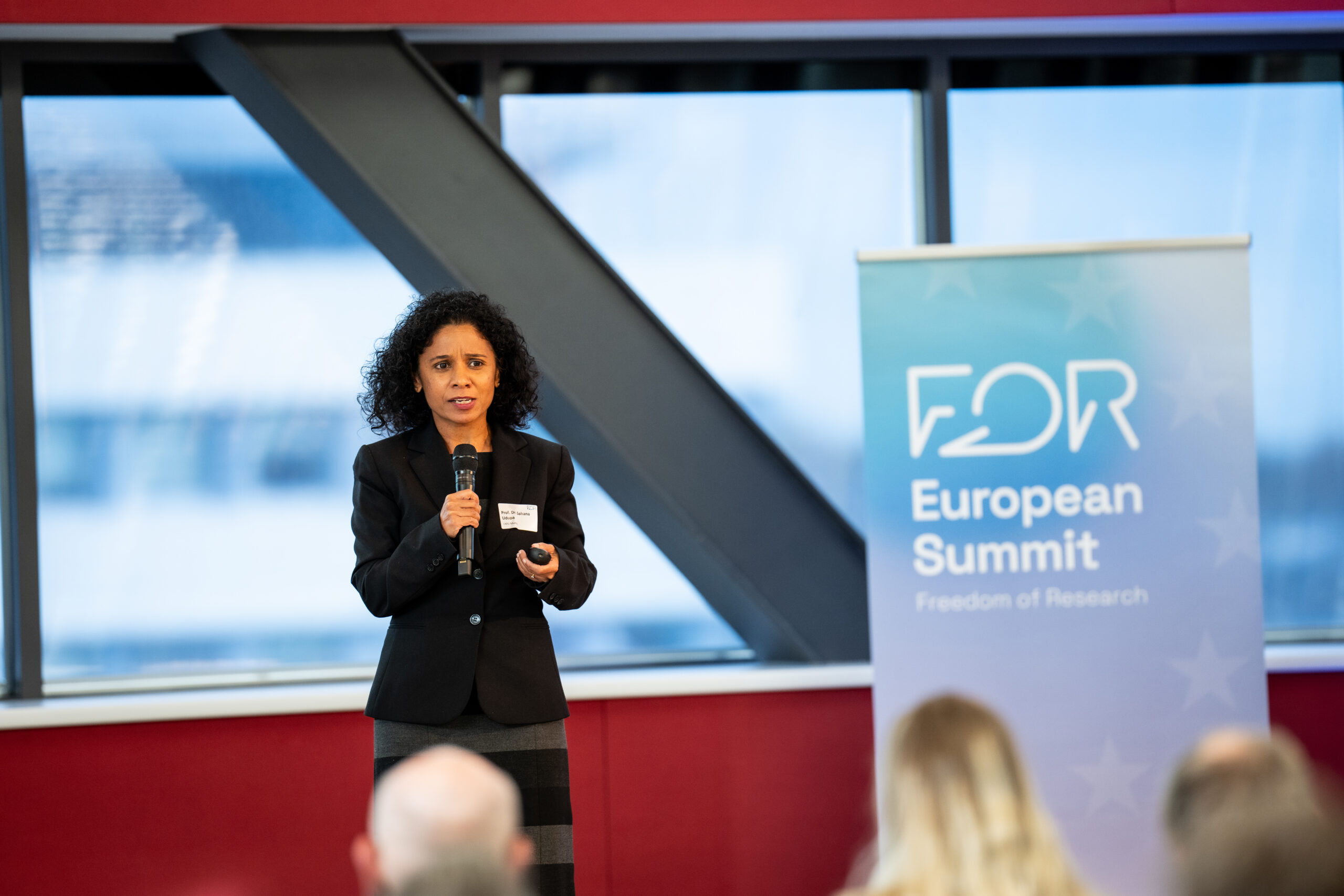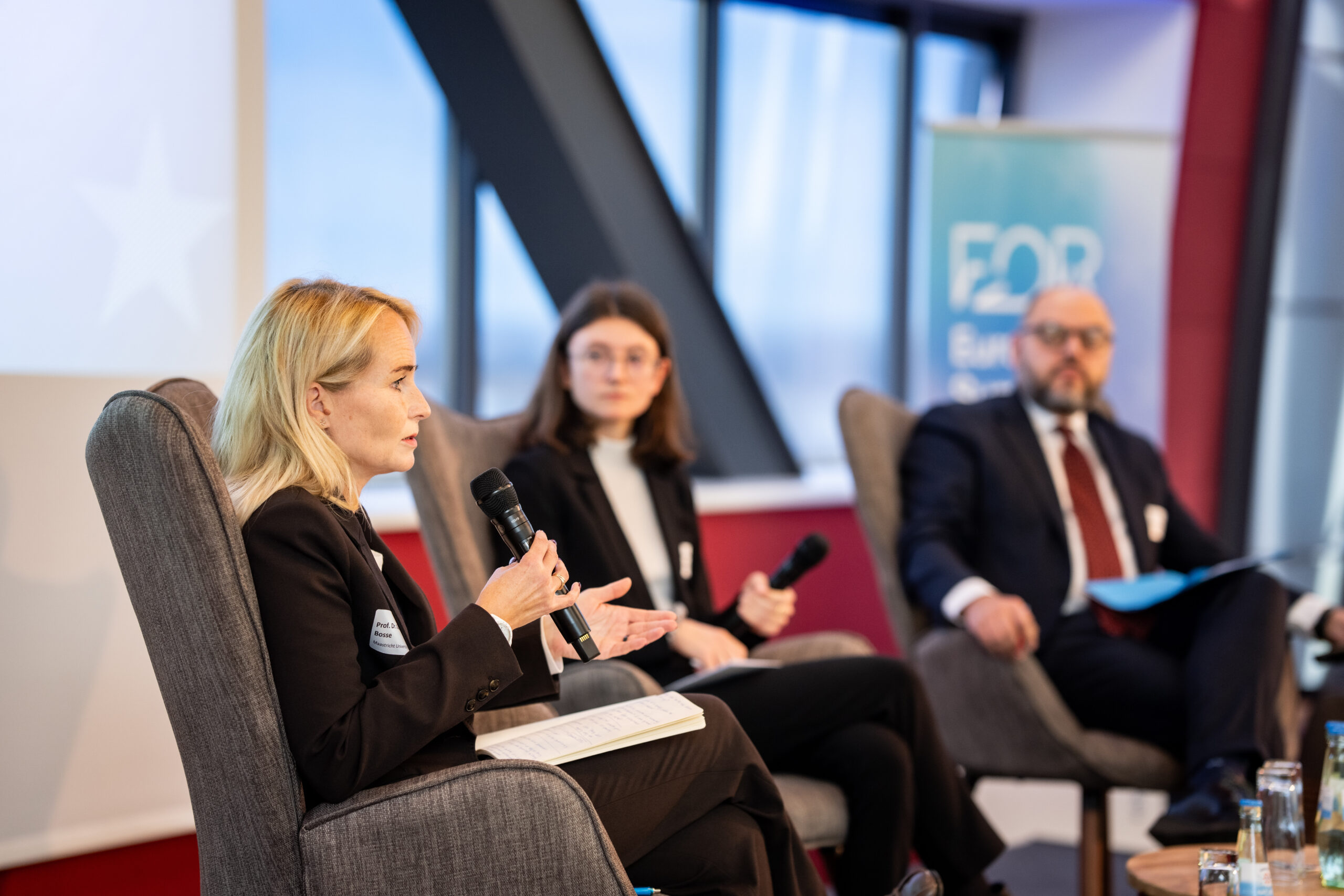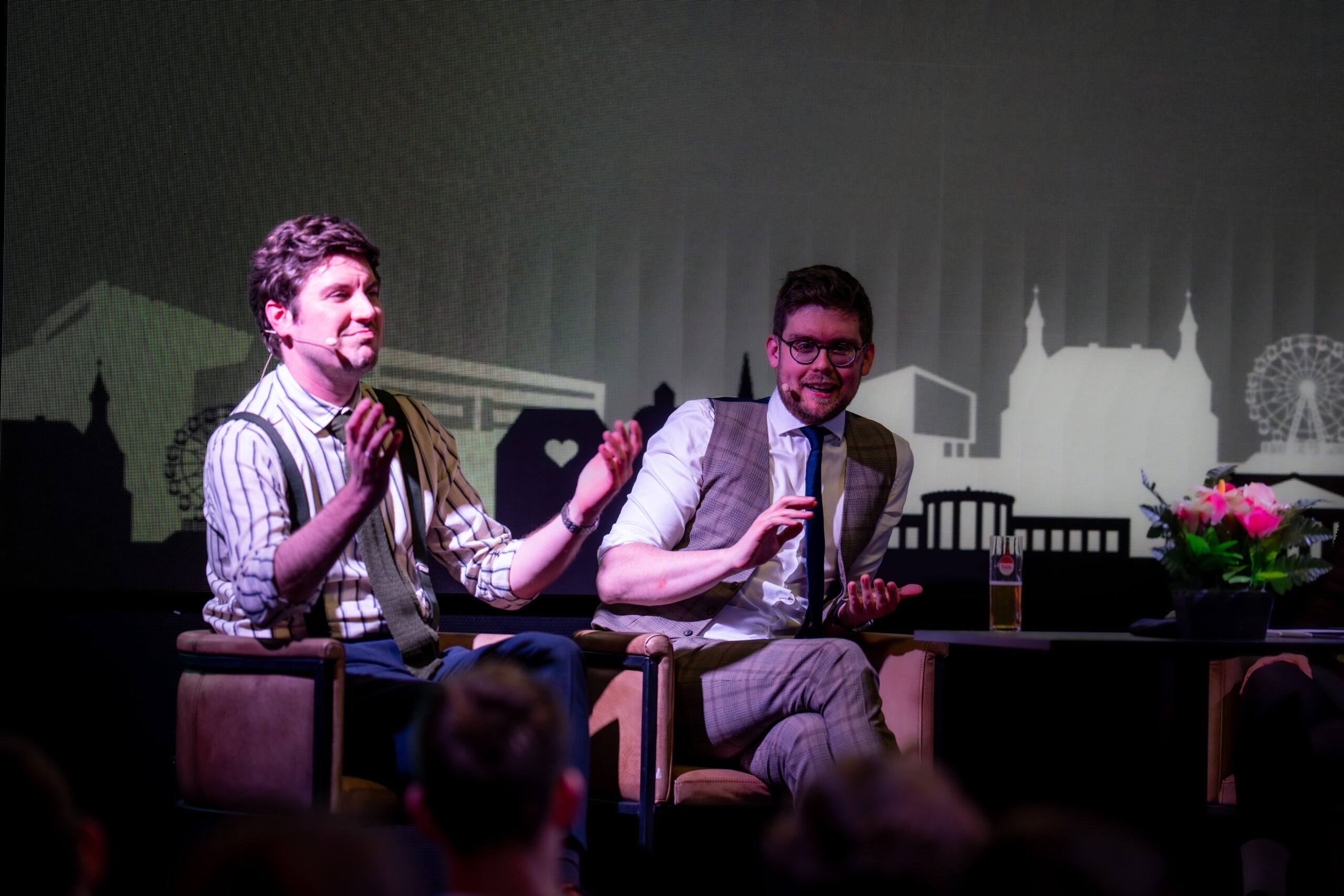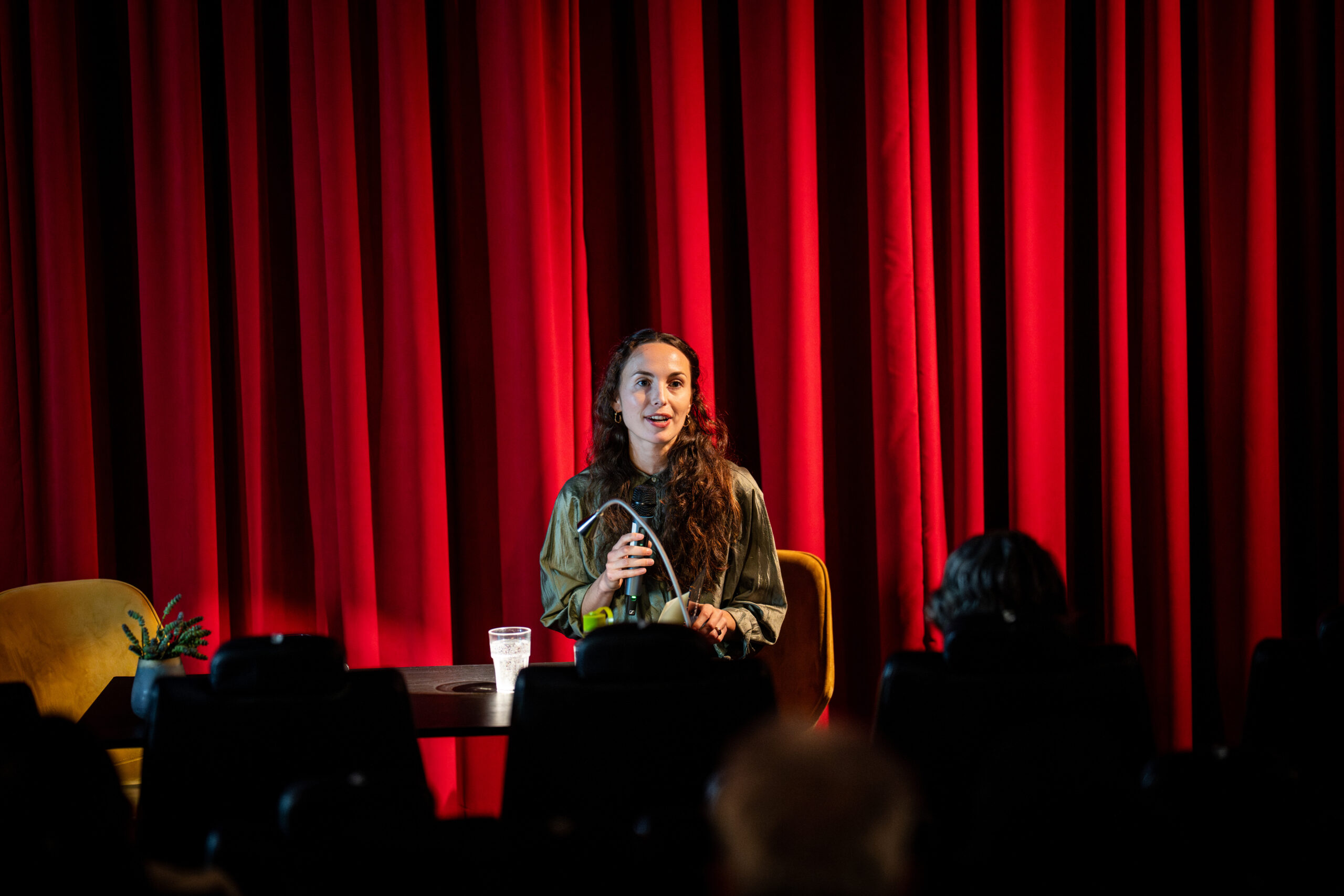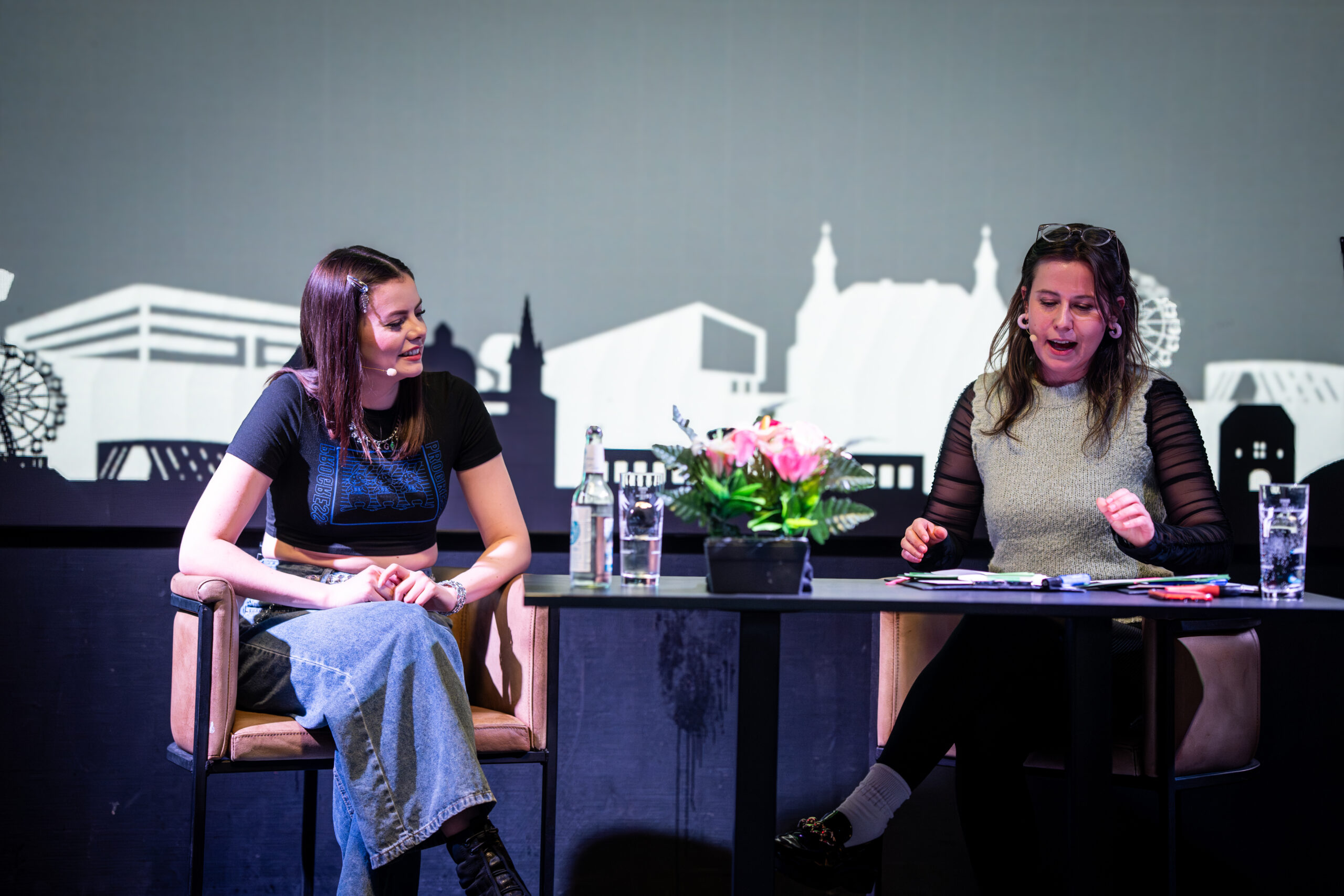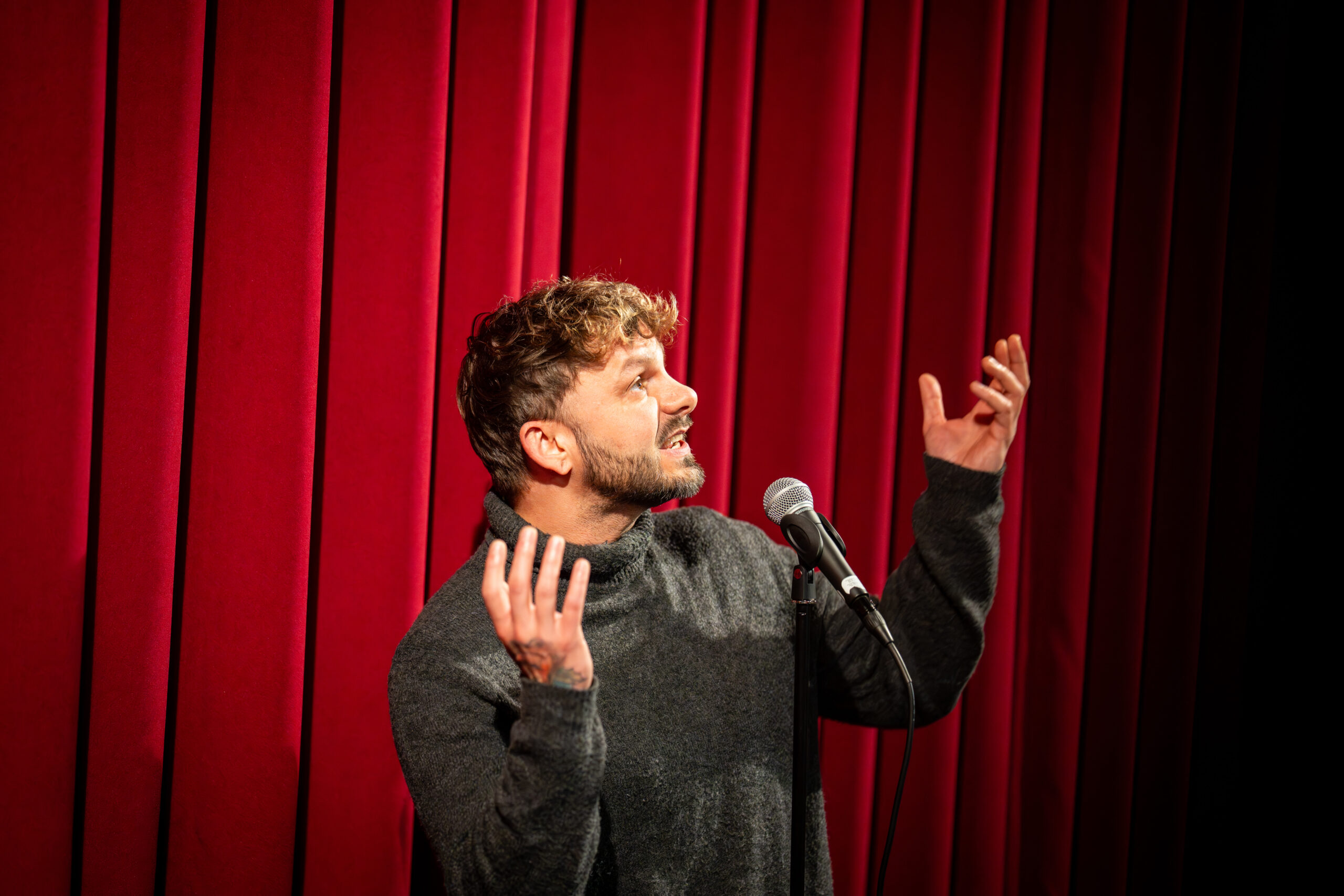Dr. Ali Abdelshafy | Charlemagne Prize Fellow 2024/25 and Assistant Professor in Future Industrial Systems at TU Delft
Ali Abdelshafy is an Assistant Professor in Future Industrial Systems at TU Delft. He received his PhD from RWTH Aachen University and holds a Master’s degree in Resource and Environmental Management, as well as a B.Sc. in Petroleum Engineering. Before joining TU Delft, he led the research group “Climate-Neutral Industries” at the Chair of Operations Management at RWTH Aachen University. He was also a visiting fellow at the Oxford Institute for Energy Studies and the University of Cambridge. He has worked on several energy transition and decarbonization projects in the industrial sector and academia. His main research areas are climate-neutral systems, energy-intensive industries, sustainable supply chains, energy transition and structural changes. During his Charlemagne Prize Fellowship, Ali will investigate the EU mission of achieving 100 climate-neutral cities by 2030. The research study will evaluate the effectiveness of different enablers and assess their impacts on the city systems in order to derive a wide range of blueprints that fit a wide range of urban contexts in the EU. He will also explore the delicate balance between sustainability and prosperity, along with the key factors that influence this relationship, in order to optimize both and accomplish the mission efficiently.
Santiago Ardisson | Jean Monnet Professor, Universidad Austral
Santiago Ardisson is an Argentinean scholar, who leads the Jean Monnet Module “EU in LAC” at Austral University (Argentina), a European Union-funded initiative on EU–Latin America relations. He is also a Fellow at the university’s Center for Global Governance Studies. He holds a Ph.D. in Law and conducted research at the Max Planck Institute (DAAD-funded). He earned a Master’s in Constitutional Justice and Human Rights (Università di Bologna, with highest honors) and completed postgraduate studies at UCLouvain, Leiden, and Geneva. His undergraduate degrees include Law and a BSc in International Development from the University of London (LSE). He has taught and presented his research on international relations and European affairs at leading institutions and conferences, such as, UIMP, IPSA, RAED and IBEI. His work has been recognized by Santander Universidades, the U.S. Embassy, University of Lucerne (UNESCO) and the University of Chicago, among others. He also advises Horasis and Conecta Iberoamérica. His EU-funded research promotes stronger EU–Latin America ties, focused on democratic values and international law.
Sophia Beiter | Charlemagne Prize Fellow 2024/25 and Research Associate, Institute for the Danube Region and Central Europe (IDM)
Sophia Beiter, MA, is a Research Associate at the think tank Institute for the Danube Region and Central Europe (IDM) in Vienna. She works on topics related to EU enlargement, democracy, and citizen participation in the EU and was responsible for the EU project ‘Towards Democratic and Inclusive Europe: EP Elections and Active Citizen Participation and Contribution‘ (EUact2). Sophia has published work on transnational lists and the Spitzenkandidaten process in EU elections, as well as on the topic of Schengen. Previously, she studied and worked at the Institute for Slavic Studies at the University of Vienna. In 2024/25, Sophia will be a Fellow of the Charlemagne Prize Academy. In her project, "A Comparative Approach to Different Models of EU Integration: How to Achieve a Citizen-Based and Reformed EU Enlargement Strategy?", she aims to develop a new, more effective, and citizen-oriented enlargement policy. This strategy will be both realistic and beneficial for accession candidates and EU members, incorporating the perspectives of citizens. By doing so, the project will not only contribute to a comprehensive proposal for EU reform but also promote public awareness of the importance of EU enlargement.
Prof. Dr. Giselle Bosse | Full Professor and Chair in EU External Democracy Support, Maastricht University
Giselle Bosse is Full Professor holding a personal chair in EU External Democracy Support and Jean Monnet Chair in EU Foreign Policy and International Relations at Maastricht University’s Faculty of Arts and Social Sciences. Her research centres on EU enlargement and democracy support in Eastern Europe, and how the EU responds to democratic backsliding and autocratisation. She examines the institutional and societal foundations of democratic change - rule of law, checks and balances, and citizen/civil-society engagement - and analyses how value-based justifications shape EU foreign policy, including the Union’s response to Russia’s war against Ukraine. Bosse’s work has been funded by major grants from the Dutch Research Council (NWO VENI, ASPASIA; HESTIA). She leads work packages in Horizon Europe projects that identify and tackle barriers to democratisation in the EU’s neighbourhood. She is also an Associate Fellow at the European Democracy Hub (Carnegie Europe & European Partnership for Democracy), visiting professor at the College of Europe (Bruges) and the Diplomatic School of Armenia (Yerevan), and co-director of the EmergEU Jean Monnet Centre at Maastricht University. She publishes widely in leading journals and frequently comments in international media. Bosse holds an MA from the College of Europe (Natolin) and a PhD from the University of Aberystwyth.
Prof. Dr. Stefan Böschen | Director of the KHK c:o/re, Chair for Society and Technology at the Human Technology Center (HumTec), RWTH Aachen University
Stefan Böschen is a sociologist of technology one of the two directors of c:o/re. He holds the “Society and Technology” chair at the Human Technology Center (HumTec), RWTH Aachen University. He is a spokesperson for HumTec and Rector’s Delegate for Leonardo, an awarded project at the same university, which aims to foster interdisciplinarity, responsibility and participation in academic teaching. He received his PhD in Sociology from the University of Erlangen-Nürnberg. From 2009 to 2010 he stood-in for the chair of Sociology of Science at Bielefeld University. After working at the Institute for Technology Assessment and Systems Analysis (ITAS) at Karlsruher Institute of Technology, he became Chair of Society and Technology at RWTH Aachen University in 2018. Stefan Böschen is also chairman of the Committee for Risk Research and Risk Perception at the German Federal Institute for Risk Assessment (BfR) and a member of the research project group on interdisciplinary reflections on science at the German Akademie der Naturforscher Leopoldina. His research encompasses science and technology studies, technology assessment, collaborative research and innovation action, knowledge and democracy.
Patrick Child | Deputy Director-General of DG Environment, European Commission, and EU Mission Manager for Climate-Neutral and Smart Cities
Patrick Child is currently Deputy Director-General in DG Environment at the European Commission and contributes to the definition, coordination and implementation of strategy and policy orientation, as well as to the coherence between Environment and other Community policies, within the framework of the policy guidelines of the Commission, with particular emphasis on zero pollution, water resilience, chemicals policy, international relations, nature restoration and protection and biodiversity. He is also the Mission manager for the Climate-Neutral and Smart Cities Mission, which aims to reach 100 climate-neutral cities by 2030.
From 2016-2021, he was Deputy Director-General in DG Research and Innovation (R&I) at the European Commission. As a member of the Board of DG R&I, he followed in particular research and innovation in clean energy and climate technologies as well as the R&I dimension of the post-COVID recovery and resilience strategy and Horizon Europe mission on Cancer. His international roles included Commission representative and chair of the steering committee of Mission Innovation (a coalition of 24 countries and the EC working to accelerate global clean energy innovation) and lead co-chair of the Group of Earth Observations (GEO).
Until April 2016, Patrick Child was Managing Director of the European External Service with responsibility for administration and finance, covering human resources policy, security and the budget. Before he took up this post in 2011, he was director in the EC External Relations Directorate-General in charge for managing the network of Commission delegations. He has previously served as head of cabinet for External Relations Commissioners Benita Ferrero-Waldner and Chris Patten.
With a background in the UK Finance Ministry, he joined the European Commission in 1994, where he started in the Economic and Monetary affairs Directorate General before becoming Commission press spokesman for economic and monetary union from 1995-1999. Mr Child studied mathematics at Cambridge University. He is married with two children.
Valentino Tignanelli | Architect, Designer and Project Manager at Aaltosiilo Ry and Factum Foundation in Oulu, Finland
Valentino Tignanelli is an Italian-Argentine architect and designer. His professional journey is characterized by a strong emphasis on collaborative design, particularly in industrial heritage and community-driven projects. Currently, he serves as Project Manager at Aaltosiilo Ry and Factum Foundation in Oulu,Finland where he leads the restoration of Alvar Aalto's first industrial complex. His work integrates cultural events, workshops, and sustainable spatial design to promote the adaptive reuse of industrial spaces, contributing to the Oulu 2026 European Capital of Culture program, the New European Bauhaus, UNESCO-Intangible Heritage in Urban Context, European Commission-Living Spaces and other European dimension initiatives.
Caroline de Gruyter, European Affairs Correspondent and Columnist | NRC Handelsblad
Caroline de Gruyter is a Europe correspondent and columnist for the Dutch newspaper NRC, currently based in Brussels. She has covered European politics for over 25 years, both from the ‘bubble’ in Brussels and elsewhere in Europe.
Caroline is also a columnist for Foreign Policy, EUobserver and De Standaard, and a member of the European Council on Foreign Relations. She was previously based in the Gaza strip, Jerusalem, Brussels, Geneva, Vienna and Oslo. She has written several books including, most recently, a best-selling comparison between the Habsburg Empire and the European Union which has been published in six languages.
Prof. Dr. Gabriele Gramelsberger | Director of the KHK c:o/re, Chair for Theory of Science and Technology, RWTH Aachen University
Professor Gabriele Gramelsberger is a philosopher of science and technology one of the two directors of the Käte Hamburger Kolleg: Cultures of Research (c:o/re). Since 2017, she holds the Chair for Theory of Science and Technology at the Faculty of Arts and Humanities at the RWTH Aachen University. She is a member of the RWTH Human Technology Center and serves as Vice Dean for Research of the Faculty of Arts and Humanities at the RWTH Aachen University. In 2019 she became a regular member of the North Rhine-Westphalian Academy of Science, Humanities and the Arts.
Her research is devoted to the digitalization of science. Her aim is to develop a conceptual framework for Philosophy of Computational Sciences as well as an open science infrastructure for Computational Science Studies. In 2018 she founded the Computational Social Systems Lab, supported by the NRW Digital Fellowship 2017. In 2023, she received the K. Jon Barwise Prize 2023 for significant and sustained contributions to areas relevant to philosophy and computing by the American Philosophical Association.
Dr. Oliver Grün | Founder and CEO of the GRÜN Software Group and President of the European Digital SME Alliance
Oliver Grün is founder and majority shareholder of GRÜN Software Group as well as President of the European DIGITAL SME Alliance, the largest network of ICT small and medium enterprises in Europe, representing more than 45,000 companies. Grün founded his IT company in 1989, at the same time as he began his studies. The GRÜN Group currently employs a total of 500 people, 350 of whom work in the GRÜN software division. GRÜN develops tailored industry software for institutions and companies in the media, retail, and industrial sectors. The company is one of the leading providers of standard software for specialized business software.
Dr. Julia Hagel | Moderator
Since 2014, Julia Hagel has been working as a moderator for conferences, events, panel discussions or video productions for e.g., the ministry of economics Baden-Wuerttemberg (BaWü), Karlsruhe Insitute of Technology, Technical University of Munich, Technical University of Berlin, or the environmental ministry BaWü.
The focus of her moderations lies on topics like science and sustainability. During her moderations she always strives to make complex topics accessible for everyone. She holds a Ph.D. in Business Administration and works as a Consumer Insights Manager at Bosch Siemens Home Appliances.
Prof. Dr. Maria Leptin | President of the European Research Council
Maria Leptin has been the President of the European Research Council (ERC) since November 2021 and chairs the ERC’s governing body, the ERC Scientific Council. She is a biologist best known for her work on the mechanisms that allow a developing body to take on its correct shape. After her studies in mathematics and biology at the University of Bonn and the University of Heidelberg, Germany, Maria Leptin carried out her PhD research at the Basel Institute for Immunology, Switzerland. She then moved to the Laboratory of Molecular Biology in Cambridge, UK, became a group leader at the Max Planck Institute for Developmental Biology in Tübingen, Germany, and professor at the Institute of Genetics, University of Cologne, Germany. She spent extended research periods and sabbaticals at the University of California, San Francisco, USA, the École Normale Supérieure, Paris, France, and at the Wellcome Trust Sanger Institute, Hinxton, UK. Before her appointment as ERC President, Maria Leptin was the Director of the European Molecular Biology Organisation (EMBO) in Heidelberg, and a research group leader at the European Molecular Biology Laboratory. She is an elected member of EMBO, the Academia Europaea and the German National Academy of Sciences (Leopoldina). She is an Honorary Fellow of the Academy of Medical Sciences, a Foreign Member of the Royal Society and an international member of the US National Academy of Sciences.
Prof. Dr. Dr. Thomas Lippert | Director of Jülich Supercomputing Centre
Thomas Lippert received his diploma in Theoretical Physics in 1987 from the University of Würzburg. He completed Ph.D. theses in theoretical physics at Wuppertal University on simulations of lattice quantum chromodynamics and at Groningen University in the field of parallel computing with systolic algorithms. He is director of the Jülich Supercomputing Centre at Forschungzentrum Jülich, member of the board of directors of the John von Neumann Institute for Computing (NIC) and the Gauss Centre for Supercomputing (GCS). He holds the chair for Modular Supercomputing and Quantum computing at Goethe University Frankfurt. His research interests cover the field of modular supercomputing, quantum computing, computational particle physics, parallel and numerical algorithms, and cluster computing.
Erica Lutes | Head of Fulbright Commission Brussels
Since June 2012, Lutes has led the Fulbright Commission for Educational Exchange between the United States and Belgium. The youngest executive director in the program’s sixty-six year history, she holds three master’s degrees—in European policy and politics, peace building, and international business—from University of Leuven and previously worked on Wall Street.
Prof. Dr. Thomas Prefi | Chairman of the Charlemagne Prize Foundation
Since 2019, Thomas Prefi has been Chairman of the Foundation of the International Charlemagne Prize of Aachen. He studied mechanical engineering at RWTH Aachen University from 1984 to 1990, where he obtained his doctorate in 1995 and habilitated in 2002. He is co-founder, former CEO and member of the Supervisory Board of ‘Umlaut SE’ (formerly ‘P3 group AG’) - which has been part of Accenture since 2021 - and contributes to the strategic direction of the company. Professor Dr Prefi holds an associate professorship for production metrology and quality management at RWTH Aachen University.
Prof. Dr. Cornelia Redeker | Professor in Architecture and Head of Umeå University School of Architecture, Member of the New European Bauhaus Facility Experts Group
Cornelia Redeker is an architect and urban planner. Her work revolves around climate-adaptation with a specific focus on landscape-based design strategies. Since fall 2023, she holds a professorship in architecture at Umeå School of Architecture at Umeå University (UMA) and is also head of the school. Before joining UMA in 2021, she was associate professor for architecture and urban design at the German University in Cairo from 2012. She holds a PhD on urban flood integration along the Rhine from TU Delft. In parallel to her PhD research, she was teaching urban design and regional planning at TU Munich. With her office Cities on Rivers / Cities on Sand, Cornelia has worked as a consultant internationally. At UMA she has initiated the research and teaching lab Designing Cycles at 64° latitude exploring how buildings and their inhabitants can turn from being consumers to becoming producers within the built environment of the sub-arctic aiming to accumulatively have a systemic impact. Cornelia is part of the expert panels for the EU Commission’s New European Bauhaus facility and Shift Sweden Impact Innovation.
Valentino Tignanelli | Architect, Designer and Project Manager at Aaltosiilo Ry and Factum Foundation in Oulu, Finland
Valentino Tignanelli is an Italian-Argentine architect and designer. His professional journey is characterized by a strong emphasis on collaborative design, particularly in industrial heritage and community-driven projects. Currently, he serves as Project Manager at Aaltosiilo Ry and Factum Foundation in Oulu,Finland where he leads the restoration of Alvar Aalto's first industrial complex. His work integrates cultural events, workshops, and sustainable spatial design to promote the adaptive reuse of industrial spaces, contributing to the Oulu 2026 European Capital of Culture program, the New European Bauhaus, UNESCO-Intangible Heritage in Urban Context, European Commission-Living Spaces and other European dimension initiatives.
Prof. Dr. Sahana Udupa | Professor of Media Anthropology, LMU München
Sahana Udupa is Professor of Media Anthropology at LMU Munich, a Berkman Klein Fellow (2024–2025), and a Joan Shorenstein Fellow at Harvard University (2021). She is currently developing a new project on controversial speech on small social media platforms in Kenya, Germany, the United Kingdom, and India. The project is funded by a Consolidator Grant from the European Research Council. In 2016, she received the European Research Council Starting Grant for her project on digital media policy. In 2020, she was awarded the European Research Council Proof of Concept Grant for the development of a collaborative AI model to combat online extreme speech. In the same year, she received the international fellowship from the Henry Luce Foundation for a multimedia project on digital dignity.
These projects, involving a core team of postdocs at LMU and a broader international network of researchers, explore the impact of internet-enabled media on political cultures of connected participation, with a particular focus on extreme forms of speech and their effects. More about the projects can be found at: www.fordigitaldignity.com. In 2021, she was commissioned by the United Nations Department of Peace Operations to produce a research paper on digital technology and extreme speech, which was published as part of the UN’s Digital Transformation Strategy for Peace Operations. She is a member of the advisory board of MediaWell, an initiative of the Social Science Research Council Network for Peace, Security, and the United Nations, which evaluates research on digital political communication.
Before joining LMU, Sahana Udupa was Associate Professor of Journalism and Media Studies at the School of Public Policy at Central European University.
Dr. Toon van Overbeke | Charlemagne Prize Fellow 2024/25 and Assistant Professor at Maastricht University
Dr. Toon Van Overbeke is an Assistant Professor at Maastricht University in the Faculty of Arts and Social Sciences, where he specialises in the intersection of European studies and the political economy of digital and climate transitions. He completed his BA and MA in history at KU Leuven and earned his MSc and PhD in Political Economy from the London School of Economics and Political Science (LSE), where he remains a visiting fellow. Toon‘s dissertation studied why market societies use innovative technologies, such as automation, so differently and how these developments influence trust and political attitudes among European citizens. During his PhD, he was a visiting scholar at KU Leuven and the Vrije Universiteit Brussel in Belgium.
Dr. Dr. René von Schomberg | Technical University of Darmstadt
Dr. Dr. phil. René von Schomberg is a philosopher and STS scholar. He was a Senior Research Fellow at RWTH Aachen University (2022). He was an European Commission official from 1998-2021. He chaired the Mutual Learning Exercise (2024-2025) on ‘Bridging the Gap between Science and Policy (with cooperation of 16 EU Member States) on evaluating science for policy ecosystems. He is author/co-editor of 15 books. He recently published Towards a New Ethos of Science or a Reform of the Institution of Science? With 5 expert critics: https://revistas.ufpr.br/novation/issue/view/3655/1024. He has worked on the issues of deliberative democracy, technology assessment, science policy, ethical and socio-economic aspects of emerging technologies, the precautionary principle, open science and responsible innovation. He is running a blog with OA resources: http://renevonschomberg.wordpress.com.
Dr. Giulio Venneri | Deputy Head of Unit, Directorate-General for Enlargement and Eastern Neighbourhood (DG ENEST), European Commission
Giulio Venneri is an official of the European Union, currently serving at the European Commission in Brussels, Belgium. He holds the position of Deputy Head of Unit for Enlargement
Strategy and Coordination in the Directorate-General for Enlargement and the Eastern Neighbourhood (DG ENEST). His prior roles include Deputy Head of Unit for Albania and North
Macedonia, Head of the “Center of Thematic Expertise for Rule of Law, Fundamental Rights and Democracy”, and team leader for relations with Albania and Bosnia and Herzegovina.
Additionally, he was the Permanent Secretary of the International Monitoring Operation (IMO), overseeing the vetting of magistrates in Albania. Earlier in his career, he coordinated justice, freedom, and security issues in the Enlargement process and the visa liberalization dialogue.
Before joining the European civil service, Giulio Venneri worked in the “Global Issues” unit of the Italian Ministry of Foreign Affairs and on project implementation in the Middle East. In academia, he serves as an adjunct professor at the School of Government of LUISS Guido Carli University in Rome and is a member of the Steering Committee for the degree in Policies and Governance in
Europe (PAGE). He coordinates the policy skills lab at the Diplomacy and Global Politics programme at the University of Westminster in London and frequently lectures at the College of Europe in Bruges for the EU Diplomatic Academy.
Giulio Venneri earned his PhD with honors from the School of International Studies at the University
of Trento. His recent publications include a volume on “The European Union’s Engagement with the Southern Mediterranean: Integrating the European Neighbourhood Policy” (Palgrave Macmillan, 2023), a handbook on “Learning Policy Advice in International Affairs and Diplomacy” (Routledge, 2025), and a contribution to the “Routledge Handbook of Artificial Intelligence and
International Relations” on AI's role in promoting the Rule of Law (2025).
Boris Walbaum | Founder and President of Forward College
Boris Walbaum is the Founder and President of Forward College. He began his career in the French public sector, serving as an Auditor at the Cour des Comptes and later as Advisor to the French Minister of Finance. He then joined McKinsey & Company. In 2004, he co-founded and led Article 1, a non-profit. The organization was awarded the International Prize of the Royal Foundation of Spain. In parallel, he founded Dual Conseil, a leading strategy consultancy specialized in higher education. Boris has been actively involved with several international institutions, including the United Nations (as External Auditor), the Aspen Institute (as Secretary General of its French chapter), Atlantik-Brücke (European Young Leaders), and the German Marshall Fund of the United States (Marshall Memorial Fellow). He holds degrees in Philosophy from Sorbonne University, in Management from ESSEC Business School, and in Public Administration from the École Nationale d’Administration (ENA), and earned a PhD in Management.
Rebekka Weiß LL.M. | Head of Regulatory Policy, Senior Manager Government Affairs, Microsoft Germany
Rebekka Weiß, LL.M. is a fully qualified lawyer and Head of Regulatory Policy at Microsoft Germany. She is the point of contact in the Microsoft Berlin team for data and competition policy, artificial intelligence, digital safety and platform regulation. Rebekka previously worked at the digital association Bitkom from 2017, where she headed the department and team for trust and security. Rebekka studied law in Germany, Switzerland and the United Kingdom and holds a Master of Laws in ‘Intellectual Property and the Digital Economy’ from the University of Glasgow. She regularly publishes in legal journals and commentaries on data law, IT security law and related fields of law.
Walter Zampieri | Head of Unit for European Higher Education, European Commission
Walter Zampieri is Head of Unit for European Higher Education at the European Education and Culture Executive Agency (EACEA). Previously, he led the Cultural Policy unit at DG Education and Culture, European Commission, and has also served as deputy head of coordination and assistant to the Director General. His roles have included work with the Social Protection Committee secretariat. Before joining the European Commission, Zampieri was Assistant Professor at the University of Central Florida and Visiting Professor at the College of the Holy Cross. He holds a PhD in Comparative Literature from the University of Connecticut and studied at the University of Padua, Italy.

